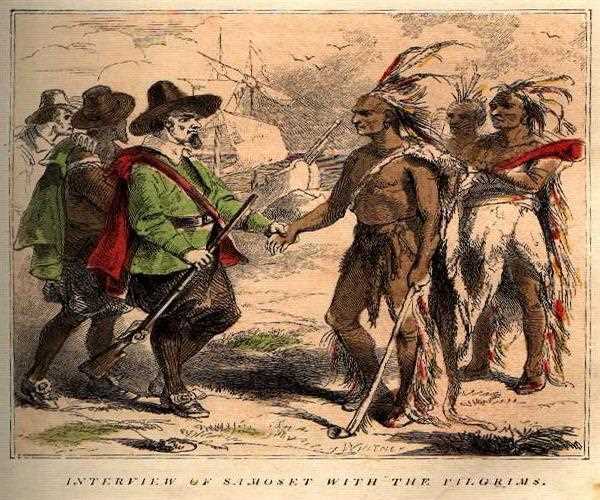Native Americans and the Pilgrims had a complex relationship, with both cooperation and conflict. One area where the two groups worked together was in the area of survival and sustenance. The Native Americans taught the Pilgrims a variety of skills that helped them survive and thrive in their new environment.
One of the most important skills that the Native Americans taught the Pilgrims was agriculture. The Pilgrims arrived in the New World during the fall, which meant that they would have to survive the harsh winter without any crops to harvest. The Native Americans, who had been living in the region for centuries, knew how to grow crops that would survive the cold temperatures and provide food for the colony. They taught the Pilgrims how to plant corn, beans, and pumpkins, which the Pilgrims used to supplement the food they had brought with them from England.
Fishing and Hunting
Another important skill that the Native Americans taught the Pilgrims was how to fish and hunt in the new environment. Many of the fish and game animals in the region were different from those found in England, and the Pilgrims had to learn how to catch them. The Native Americans taught the Pilgrims how to fish in the rivers and the ocean and showed them which animals were safe to eat and how to hunt them. This provided an important source of food for the colony during the winter when the stored crops were running low.
Hunting and Trapping

In addition to fishing, the Native Americans also taught the Pilgrims how to hunt and trap the various game animals found in the region. They showed the Pilgrims how to use different types of traps and snares to catch animals such as beavers, otters, and muskrats. They also taught them how to make and use bows and arrows and how to track and hunt different types of game animals such as deer, turkey, and small game. This provided an important source of food for the colony and also taught the Pilgrims valuable skills for survival in the wilderness.
Medicinal Plants
The Native Americans also taught the Pilgrims about the medicinal properties of various plants found in the region. The Pilgrims had brought few medical supplies with them, so they had to rely on the plants found in the new world to treat illnesses and injuries. The Native Americans showed the Pilgrims which plants could be used to treat specific ailments and how to prepare them.
Animal Movement Patterns
The Native Americans also taught the Pilgrims about the movement patterns of different animals, including when and where they migrated and how to track them. This knowledge was essential for hunting, as it allowed the Pilgrims to know where to find the animals they wanted to hunt and when they were most likely to be in that area. This helped the Pilgrims to be more efficient in their hunting and to make the most of the resources available to them.
Other Skills
Native Americans also taught the Pilgrims other practical skills such as how to build shelters, make clothing, and navigate through the wilderness. They taught the Pilgrims how to make canoes and how to use them to travel on the rivers and the ocean. They also taught the Pilgrims how to make moccasins and other clothing from animal hides and how to use animal hides for blankets and other warm winter clothing.
Conclusion
In conclusion, the Native Americans played a vital role in the survival of the Pilgrims during the early years of the colony. They taught the Pilgrims a variety of skills that were essential for survival in the harsh New England environment. They taught them how to farm, fish, hunt, trap, use medicinal plants, and navigate through the wilderness. The Pilgrims were able to use these skills to supplement the food they brought with them and to provide for their needs during the first harsh winters. The knowledge and assistance provided by Native Americans helped the Pilgrims to establish a sustainable colony in the New World.